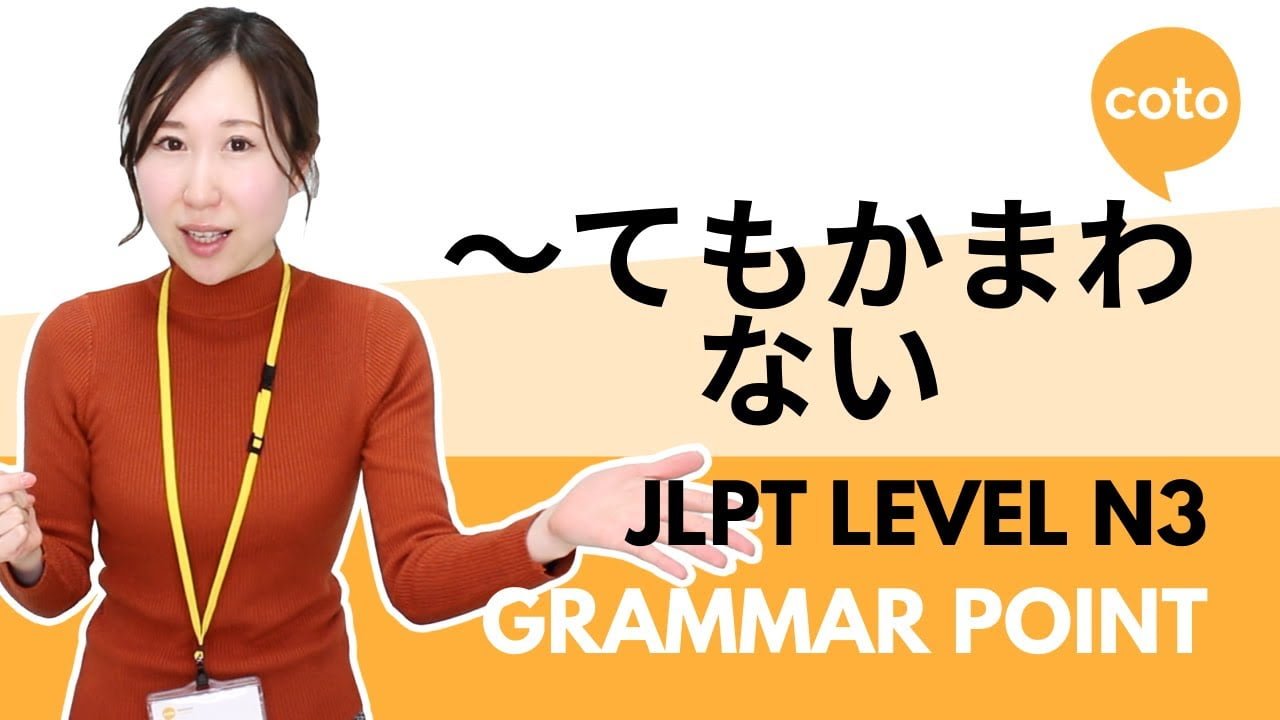We have another companion blog for you! In this entry, we review Nami-sensei’s video above, where she teaches the JLPT N3 Grammar point: ~てもかまわない (~te mo kama wa nai). Meaning: “It doesn’t matter if…”/”I don’t mind if…” in Japanese
You know the drill – first watch the video, then review with this article! And don’t forget to subscribe to our channel 🙂
How to Use JLPT N3 Grammar point: ~てもかまわない
First of all, let’s review the polite and casual ways to use this grammar point.
Polite:
〜ても構いません
~te mo kamai masen
Casual:
〜ても構わない
~te mo kamawanai
The verb is 構う (kamau) – which means “to worry” or “to be concerned about”. And as you have learned previously, 〜ても (te mo) means “even if~”. So put together, xyz ~ても構わない/構いません means “Even if xyz, it doesn’t matter” or “I don’t mind if xyz.”
There are many different ways to use this word. In Nami-sensei’s video above in particular, she teaches how to ask for permission.
It can be made into a question easily → 〜ても構いませんか? “Do you mind if~”
This is like a more polite way of~てもいいですか?
Let’s look at some examples!
JLPT N3 Grammar ~ても構わない Examples
Example 1
Student: 辞書を使ってもいいですか?
jisho o tsukatte mo ii desu ka?
Can I use a dictionary?
Nami-sensei: はい、分からない言葉があったら辞書を使っても構いません。
hai, wakaranai kotoba ga attara jisho o tsukatte mo kamaimasen.
Yes, if there are any words you don’t understand, I don’t mind if you use a dictionary.
In this example, the student is asking about using a dictionary for the grammar test. Nami-sensei responds politely with “I don’t mind if you use a dictionary if there are any words you don’t understand.”
It has the same meaning as 辞書を使ってもいいです。Only the nuance is a bit more polite!
Let’s look at another example.
Example 2
すみません、ここで電話しても構いませんか?
sumimasen, koko de denwa shite mo kamaimasen ka?
Excuse me, do you mind if I make a phone call here?
In this situation, Nami-sensei uses this grammar point to ask if there is a problem with using her phone. The grammar point asks “Do you mind if…” or “Would this bother anyone?”
